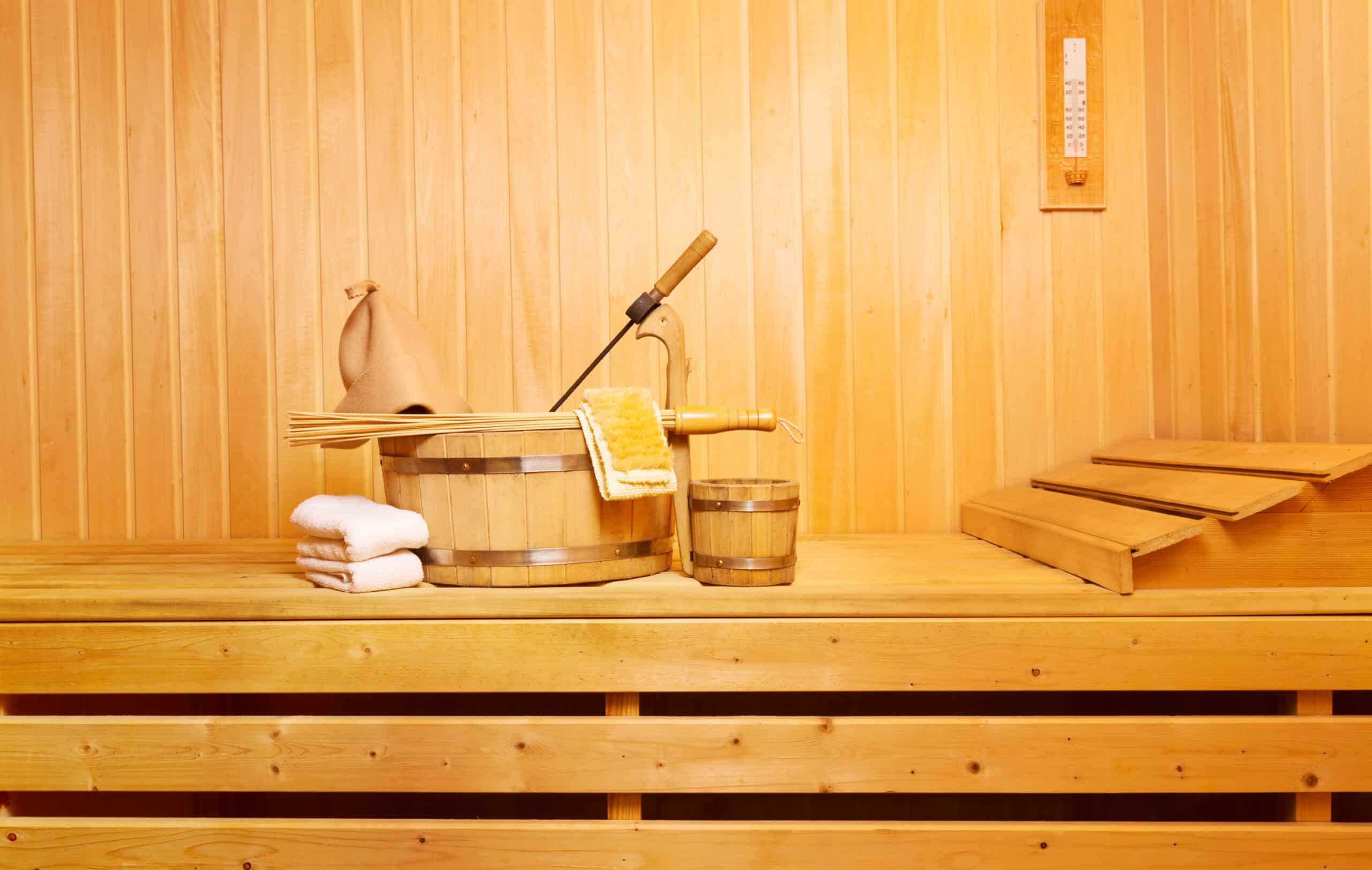Saunas are basically rooms typically heated to between 70-100 degrees Celsius which are geared to help people relax in dry heat that may provide benefits for cardiovascular health resembling similar to that derived from exercises. It can be dangerous to ingest alcohol before or during sauna use, and anyone pregnant or with cardiovascular problems is advised to seek medical advice before using a sauna.
Several types of saunas are available: Wood burning typically low in humidity; electrically heated which is similar to wood burning; infrared using special lamps and light waves to heat the body not the room; and steam rooms which use dry heat involving high humidity and moist heat. Effects on the body regardless of how a sauna is heated produces similar effects. When in a sauna heart rates increase and blood vessels widen increasing circulation in similar manner to low to moderate exercises depending on duration in sauna; heart rates may increase 100-150 beats per minute which may bring some health benefits.
Saunas may increase circulation, reduce muscle soreness, improve joint movement, and help to ease arthritis pain. Saunas may also be associated with lower blood pressure and enhanced heart function, reduce oxidative stress, chronic pain and chronic fatigue.
Saunas improve circulation and promote relaxation which can improve feelings of well being and reduce stress which may be linked to lower risk of cardiovascular events. 2,315 men aged 42-60 were followed over 20 years in Finland with findings suggesting people who use saunas may have a lower risk of dying from cardiovascular disease, as participants who used saunas 2-3 times per week were found to be 22% less likely to experience sudden cardiac death; those using saunas 4-7 times per week were found to be 63% less likely to experience sudden cardiac death and 50% less likely to die from cardiovascular disease.
Some psoriasis patients find symptoms reduce while using saunas, while atopic dermatitis patients may find symptoms worsen.
Asthma sufferers may find relief from some symptoms while using saunas as it may help to open airways, reduce stress, and loosen phlegm.
Findings from a 20 years study in Finland has linked sauna use with lower risk of dementia and Alzheimer’s disease involving upwards of 2,315 healthy men aged 42-60 fining those using saunas 2-3 times a week to be 22% less likely to get dementia and 20% less likely to develop Alzheimer’s; and use 4-7 times per week had 66% less likelihood of dementia and 65% less likelihood of Alzheimer’s disease.
It appears though moderate sauna use is safe for most people, those that are pregnant or with cardiovascular disease or have had a heart attack should consult with their doctors before use. Switching between heat and cold water is not advisable as it can raise blood pressure. Those with low blood pressure should also consult with their doctor before use as saunas may cause blood pressure to fall.
If ill wait until fully recovered before using a sauna, and avoid use of alcohol while in sauna as it increases risk of arrhythmia, hypotension, dehydration, and sudden death. It is advised not to spend more than 20 minutes at a time in the sauna, starting at first time use of 5 minutes gradually building up tolerance, drinking plenty of water before, after, and during to replace fluids lost from sweating.
Contrary to myth saunas do not remove toxins from the body, there is no scientific evidence to prove sweating detoxifies the body; nor do they lead to weight loss, weight loss is due to fluid loss which will be replaced as soon as something is consumed or drank; and lastly saunas should not replace exercise in regards to heart health as there is more evidence supporting benefits of regular exercise.




